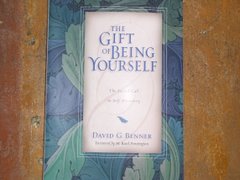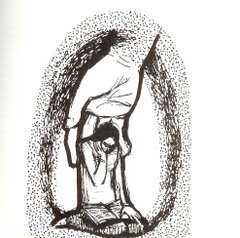Holy Bible, human Bible (2)
How does the Bible relate to the Word of God?
The author Gordon Oliver asks, "Is it God's first word, God's only word, God's last word?" He challenges us to think about how we view God's Word. Saying that "the Bible is the Word of God" is something most evangelicals take for granted. This seems straightforward but raises problems when "interpreting passages where God is presented as requiring attitudes and practices that most people today would regard as racist, sexist, discriminatory or violent." This raises hard questions about what the Word really tells us today about such practices. And "if different groups of people hear the Word of God differently from each other, who is to decide which hearing is the right one and what criteria will they need to use?"
Another position states that "the Bible reveals the Word of God". "The Bible taken as a whole, is inspired by the Holy Spirit and so reveals the Word of God." Those who hold to this second way will be less likely to be concerned with minutiae of how some of the actual words of Scripture are to be interpreted. The written word 'reveals' the spoken word of God in conversation - this requires generous hospitality and attentive listening. The Bible is allowed to speak as open text rather than closed text.
A third option is to say that "the Bible contains the word of God - alongside a lot of other stuff that it contains". This is the way most people use the Bible in practice . Particular passages are more frequently read than others in public worship or personal devotions. This leads to the idea of a 'canon within the Canon'.
Another way is to 'receive Scripture as sacrament'. Sacraments are holy mysteries in the theological sense of moments of decisive personal encounter with God. Thinking about Scripture as sacrament is helpful because this is able to 'hold together possibilities of comparisons and parallels between Scripture and the experience of the hearer with possibilities of contrast, confusion and mystery'. Taken this way, we do not have to make claims for full knowability of the meaning of the text. The text of the Bible is more an open book than a closed discussion. The text is often ambiguous in meaning and wide open to interpretation. This opens up the world of God's speaking and acting amongst the disordered lives of people and nations.
The Bible and the Creeds are both foundational and yet also open.
I find the last paragraph of the chapter a good reminder to those who want to honor Scripture and yet find confusion when confronted with purely literal interpretations.
"Treating the Bible as some kind of literary pope that utters holy truth without regard to circumstance or context will only serve to close some issues that should be left open to the speaking of God. Simple resort to proof-texting, far from enabling the word of God to be clearly heard, undermines the whole idea of the Bible as revealing the word of God. The very idea of the word or the speaking of God carries the invitation to engage in conversation that can lead somewhere quite new with new resources for getting there."
I believe that when we pray Scripture, rather than just read or study it, we begin to understand what 'openness' to the Word means. It is always a conversation - it implies an intimate relationship between the two parties - God and his people. And the willingness of God to reveal himself in and through the written word.






+223.jpg)


























No comments:
Post a Comment